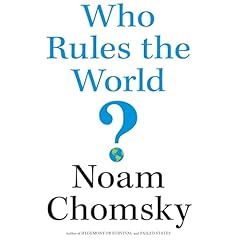
The Syrian Civil War
The History of the 21st Century's Deadliest Conflict
No se pudo agregar al carrito
Add to Cart failed.
Error al Agregar a Lista de Deseos.
Error al eliminar de la lista de deseos.
Error al añadir a tu biblioteca
Error al seguir el podcast
Error al dejar de seguir el podcast
Obtén 3 meses por US$0.99 al mes
 Exclusivo para miembros Prime: ¿Nuevo en Audible? Obtén 2 audiolibros gratis con tu prueba.
Exclusivo para miembros Prime: ¿Nuevo en Audible? Obtén 2 audiolibros gratis con tu prueba.
Compra ahora por $9.76
-
Narrado por:
-
Mark Norman
In December 2010, a 26-year-old Tunisian street vendor's self-immolation triggered protests that spread from his hometown in Sidi Bouzid to cities across the country. The next month, on January 14, the country's autocratic president, Zine el-Abidine Ben Ali, fled the country. This would be the start of what became known as the "Arab Spring", which ultimately saw anti-government protests responded to with violence, reform, or both in countries across the Middle East. In Syria, the protests that began as early as January 2011 and increased in intensity the following March devolved into a complex armed conflict that involves multiple armed groups and continues to this day. Like the other dictators, Bashar al-Assad faced popular demonstrations against his regime at the height of the Arab Spring, but he steadfastly refused to step down from power, and the protests against him and his government quickly turned violent, which eventually enveloped Syria in a civil war that has already killed over 400,000, created over four million refugees, and shows no signs of ending anytime soon. Furthermore, on August 21, 2013, a chemical weapon attack outside of the capital city Damascus left around 1,500 civilians dead, and anti-Assad factions in Syria, as well as enemies of the Assad regime in other countries, have blamed the Syrian regime for the attack, while Assad claims his enemies are responsible.
Although seeing and hearing about events in other countries affected by the Arab Spring most certainly helped encourage Syrian demonstrators, there are a number of other factors that contributed to the war, from foreign jihadist groups to the weather (from 2006-2011, a severe drought helped trigger increased urbanization, with a significant movement of the country's population moving from rural into urban areas and a corresponding worsening of socio-economic conditions). There was also a decline in oil production from 548,000 barrels per day (bpd) in 2000 to 380,000 bpd in 2009. At that time, the failure to discover new deposits meant an expected continued decline. Opposition to Assad's rule also already existed; there were people disappointed with continued limitations on freedoms and his failure to implement promised reform. This included the introduction of the "Damascus Spring" at the start of Assad's tenure, which involved state-sanctioned social and political debate but was ultimately suppressed. There was also significant opposition among Sunni Islamists who hadn't forgotten the deadly 1982 crackdown on the Muslim Brotherhood in Hama by Hafez al-Assad.
Over five years later, Syria remains a flashpoint and an international crisis. The major questions that concern the future of Syria are whether Assad will literally and politically survive the civil war, and what Syria's future will be in the wake of the civil war. Answering these questions requires an understanding of Assad's religious sect, the Alawites, the regional strife among Sunni and Shiite nations, Arab nationalism, and the Assad family as a whole.
The Syrian Civil War: The History of the 21st Century's Deadliest Conflict looks at the still-raging war and how it has been fought.
©2016 Charles River Editors (P)2016 Charles River EditorsLos oyentes también disfrutaron:




















As I’m reading this, Assad is in Moscow, the rebels have complete control of the country, and people are currently literally digging people out of Assad’s underground prisons.
All of which happened in about 2 weeks?
So yeah, the ending line of this book is unintentionally hilarious.
In terms of actual content, it covers the issue nicely. A bit bland at times, and I’ll fully admit I started tuning out a lot, but it still gives a good overview of Syria’s problems circa 2016.
And credit where it’s due, the explanations for how the composition of the rebels and government forces was super relevant to Assad’s eventual downfall. You can see the seeds of HTS’s pivot from Islamic fundamentalism, and how Assad was increasingly propped up by his foreign backers.
Good history, incorrect predictions
Se ha producido un error. Vuelve a intentarlo dentro de unos minutos.


